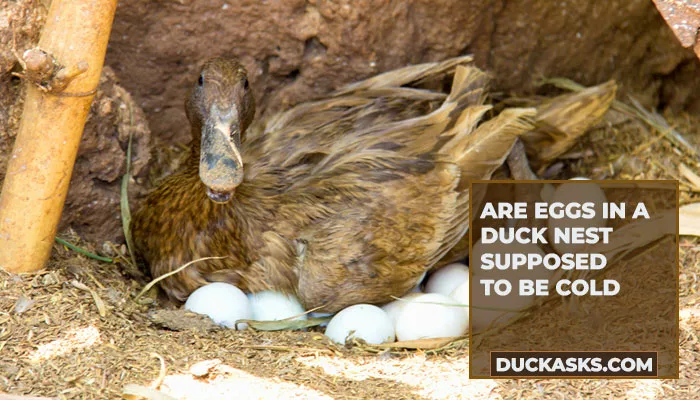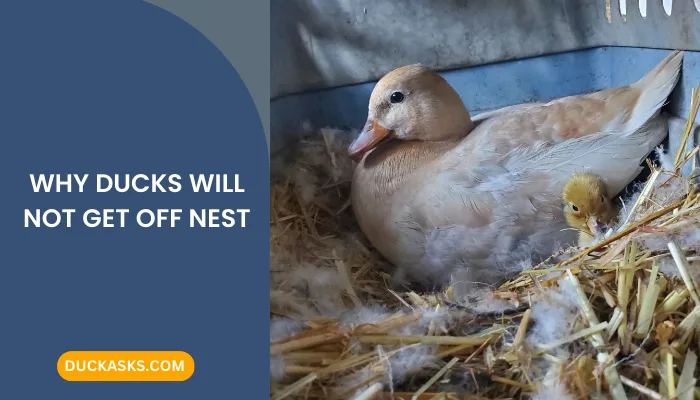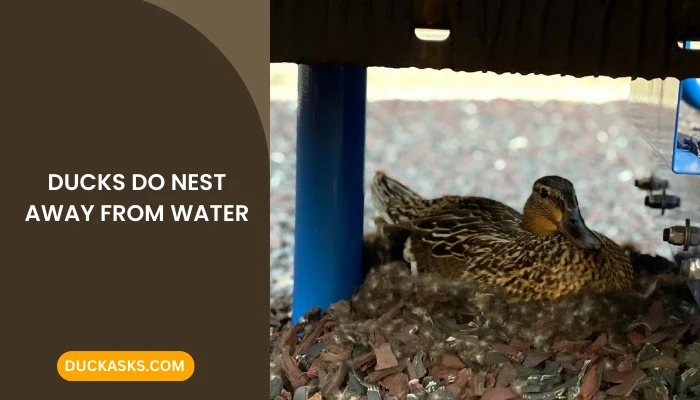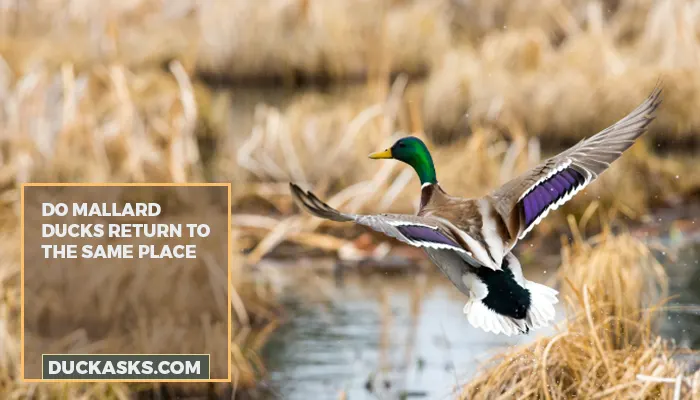Where Do Ducks Sleep at Night?
Ducks comply on both water and land when it comes to sleeping; can’t say that about most other birds. Especially in the daytime, if the atmosphere is right, ducks have no problem dozing off, even at the most unusual plains.
But, when it comes to night-time, where do ducks sleep at night? Mostly the same as daytime areas. The location primarily doesn’t revolve around the arrival of the sun, it depends more on the breed of the duck. For instance, mallards prefer both land and water for sleeping. Squealers and Teals, on the other hand, prefer water over grass and earth.
For a better understanding, you might want to check the rest of the article for answers about everything you want to know regarding the ducks’ nocturnal sleeping habits.
Want to learn more about ducks habitat:
Do Ducks Sleep at Night?
You already know the answer is yes. What you don’t know is that ducks are referred to as semi-nocturnal birds. That means while they sleep for some hours in the darkness, it’s not how they spend the entirety of the night.
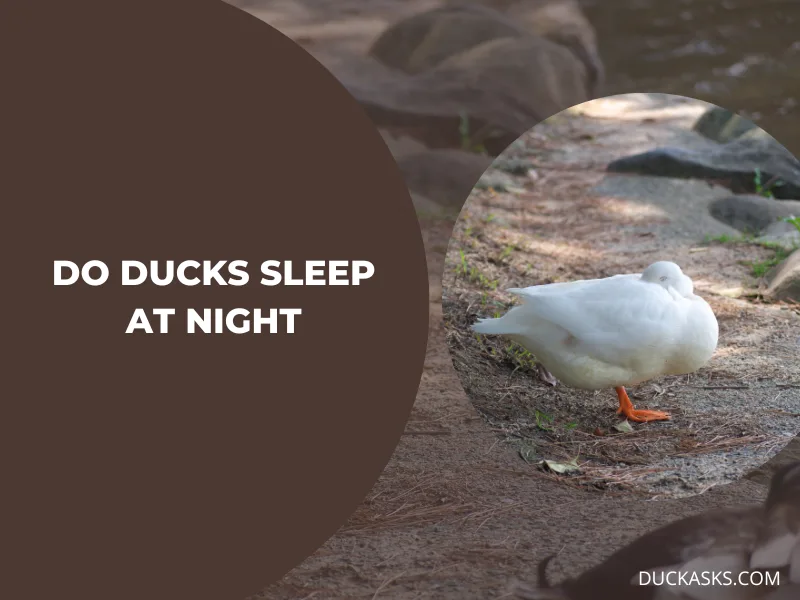
Ducks don’t sleep continuously through the night. They rest for a short period and then stay awake from time to time.
At nocturnal hours, they’re more at ease though, as their predators are less likely to go for a hunt and more likely to sleep in those hours.
Do Ducks Need Shelter at Night?
Ducks need shelter at night just as much as the next bird. They will settle at any place for resting if they deem the area secure from predators and suitable for shelter.
Plus, they do alright in nature in the summer and prefer more of a cozy and human-made shelter during winter.
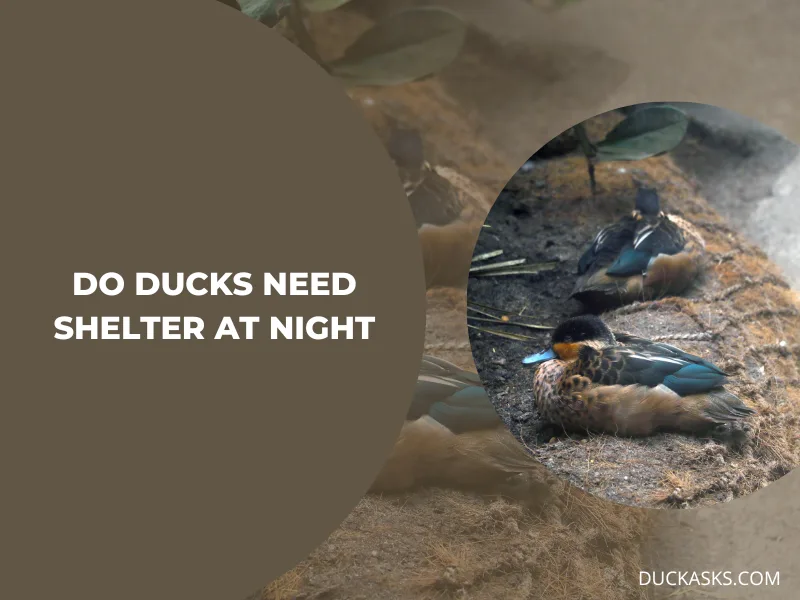
Ducks don’t care about roosting or a specific space for laying eggs. The only reasons they want a shelter is for decent shade, to keep away from predatory paws and fangs, and to accumulate warmth on cold winter days.
Shade isn’t a problem at night, but other issues do weigh in while ducks are selecting their home for the night, and something for you to keep in mind when you’re in charge of it.
Where Do Ducks Go at Night Time?
Since ducks have no problem sleeping on water or land, they call it a day anywhere they find it fitting.
Most duck breeds love to sleep on water, but they’re less likely to do that on winter nights. Instead, they tuck their necks in feathers in some place that’s warm and insulated, human-made coops, the majority of times.
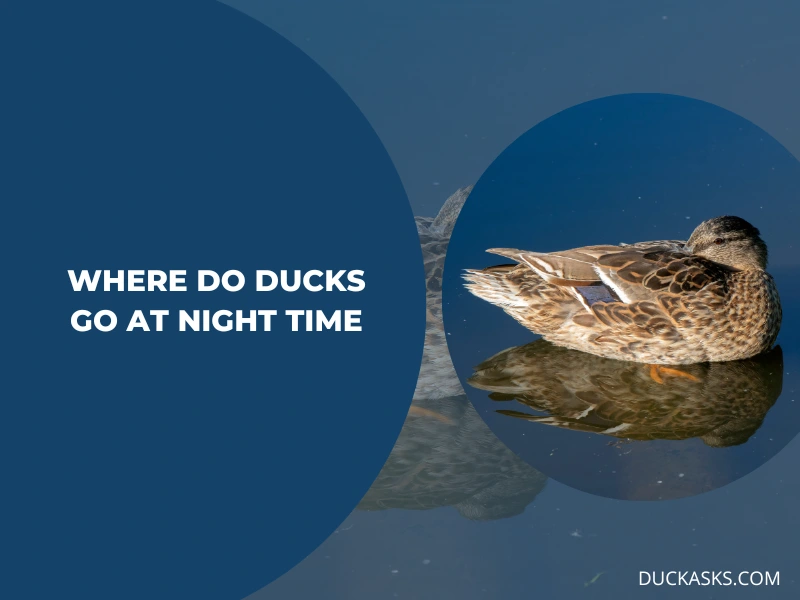
Ducks do most of their night-time sleeping during summer, so the resting location is never anywhere specific.
On cold nights, they spend more hours walking and waddling to keep their body temperature up and prefer to do so on dry surfaces and close to a coop.
Domestic ducks, regardless of the season, head towards the coop when the day starts to lose light.
Do Ducks Always Sleep in the Same Place at Night?
Domestic ducks always sleep in the same place at night. Wild ducks are not that fond of marking one spot as the ultimate resting zone.
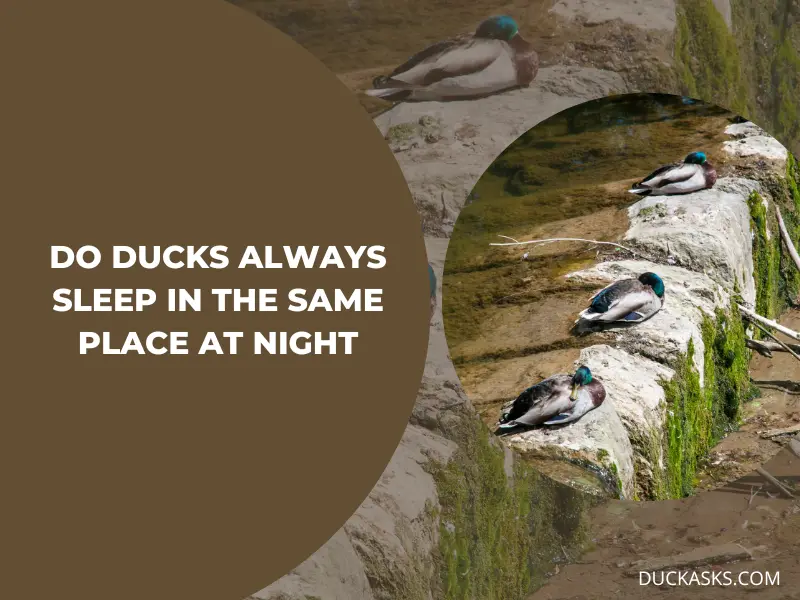
They keep swimming and walking until they’re ready to sleep and the place fits all the safety requirements.
Since ducks as a species aren’t big on roosting, they don’t need a particular place to stop their legs or to lay eggs.
What Are Some Common Places Ducks Sleep in?
It’s hard to roughly pinpoint locations preferred by ducks for sleeping. For water-loving breeds, it’s usually the nearest pond, lake, or river. Apart from that, ducks love to doze off on their feet while walking over grass or fields.
If there’s a shelter for them, ducks will prefer to stay in the shelter during night-time.
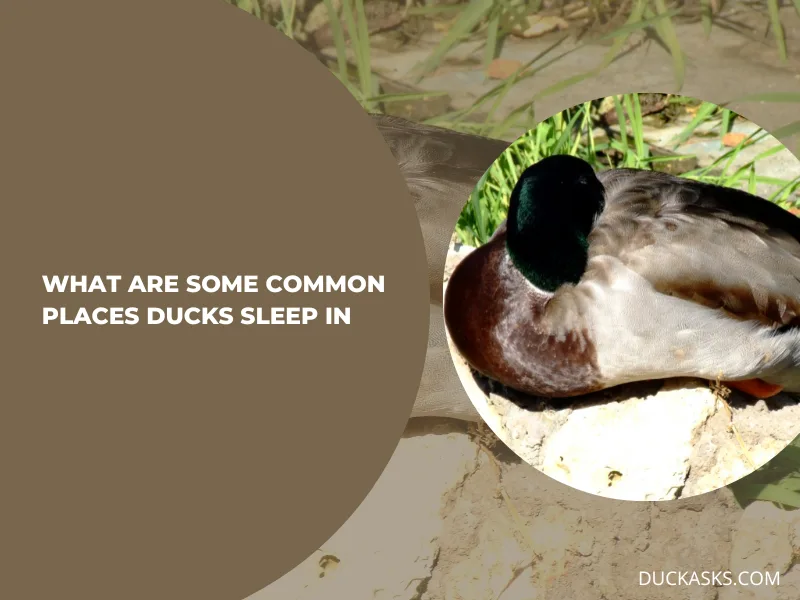
Now, you may wonder, do ducks need a specific type of shelter to sleep in?
Good for us, they don’t. Ducks will make any coop their home without asking for much.
In fact, you can keep ducks in chicken coops too. Just cover the coop floor with straw as they prefer to sleep on the floor, and have enough vents on the wall for comfortable breathing.
Bring the ducks to the coop for resting, and they themselves will take care of the rest.
Do Ducks Sleep in the Water or on Land at Night?
Although water and land both work just fine for the ducks, most breeds prefer land for night-time sleeping.
The land is the best option on winter nights. Even in summer, the water gets colder during the night-time. Migratory breeds like Mulcovys often prefer trees for resting at night.
Do Ducks Sleep in Groups or Alone at Night?
Ducks love to waddle in flocks and swim in flocks, they even prefer sleeping in flocks. They have lots of predators lurking around, and they choose to sleep in big groups to protect themselves from the prying claws.
In this arrangement, ducks maintain a sleeping cycle where all ducks don’t fall asleep at the same time and there’s at least one member awake on the lookout for danger.
They either roost closely or sometimes in a line like an army while sleeping in groups.
In the case of lining position, the member at the end of the line usually stays awake to alert the other ducks when needed. And they stay prepared for that while resting inside a coop as well.
What Are the Signs that a Duck Is Ready to Sleep?
Ducks are always on the go when they’re not resting. So, it’s easy to separate a resting duck from a fully awake one. Ducks normally resort to the following positions when they’re preparing to sleep –
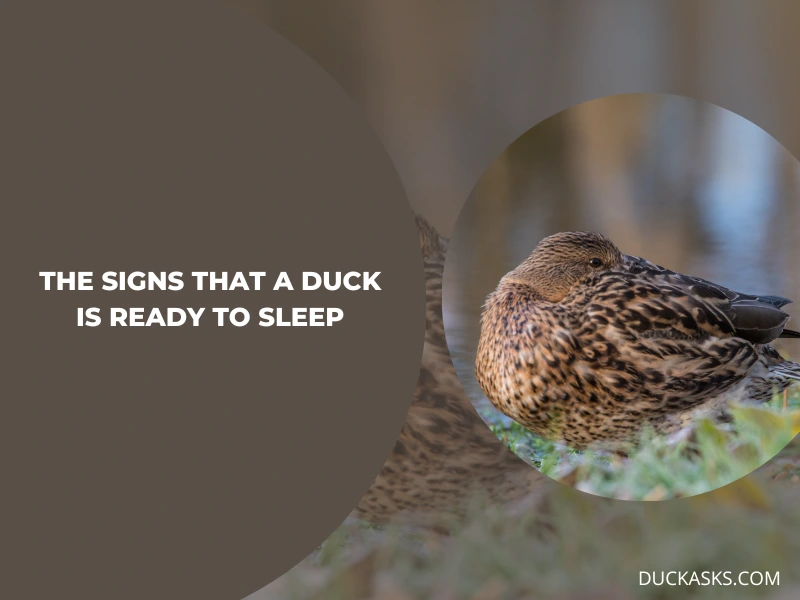
You see them do any of these, you know it’s time to leave them alone for some quiet napping time. Don’t worry about their safety. Ducks tend to sleep when they feel secure enough to put their guards down.
Frequently Asked Questions
1. Where do ducks sleep when it rains?
While ducks don’t mind getting wet in the rain, it’s a completely different deal when sleeping is in question. Ducks prefer dry surfaces to rest on, so they seek dry areas for sleeping when it’s raining. They tend to sleep on dry spots under the tree or coop floors in this situation.
2. Do ducks sleep a lot?
Since ducks spend about 45% of a day sleeping, it’s safe to say they sleep a lot. They sleep more than most other birds.
3. Can you make a duck that prefers water rest in a coop?
It’s possible to do so as ducks are not picky about their living situation if it’s not something detrimental. But you should have a bath or water reserve near the coop to cater to their swimming and sleeping needs. Ducks that prefer water for sleeping do that mostly because of the temperature and ease of swimming.
4. How Much Do Ducks Sleep at Night?
In their duration of 10-11 hours of napping time a day, ducks do most of their sleeping during the daytime. They sleep for about 6 hours on average at night, 8 hours at best. Their semi-nocturnal nature keeps them from snoozing for the most part of the night.
5. What Is the Duck’s Sleeping Schedule?
Ducks, on average spend ten to eleven hours of a day sleeping, and it rounds up to 45% of the day. They don’t have a specific sleeping schedule; they doze off whenever and wherever they please in several short bursts throughout the 24 hours of a day.
Conclusion
You’re now more than capable of choosing a shelter for ducks on the basis of the question, where do ducks sleep at night? Hope this helps you to create a better and safer sleeping environment for the ducks around you.
Even if you’re thinking of making some adjustments to their sleeping situation, keep away from doing something that will disturb their natural sleeping habit.
References:
- https://www.ducks.org/conservation/waterfowl-research-science/ducks-after-dark
- https://www.gi.alaska.edu/alaska-science-forum/bird-brains-stay-alert-while-ducks-sleep
Image Credit:
- Canva.com/photos

